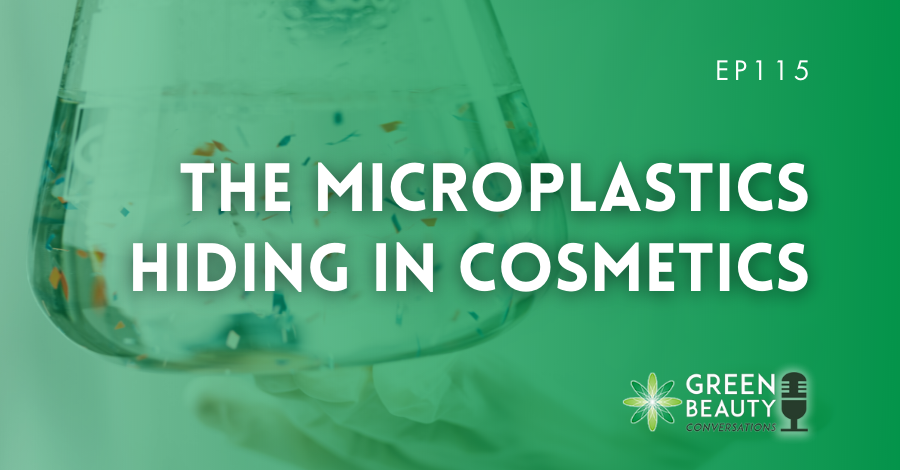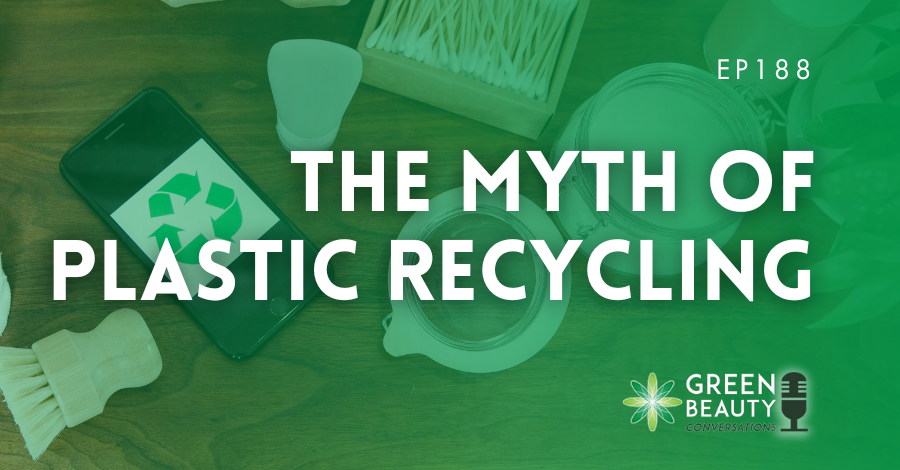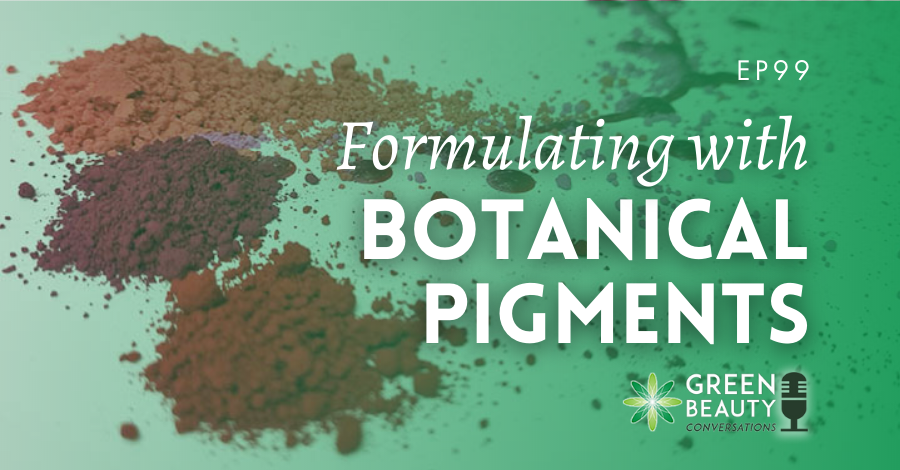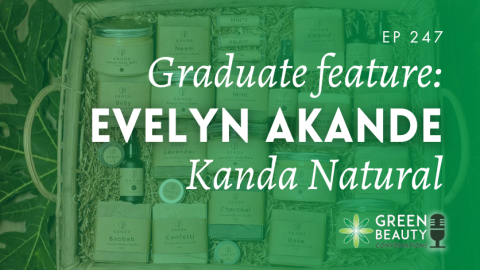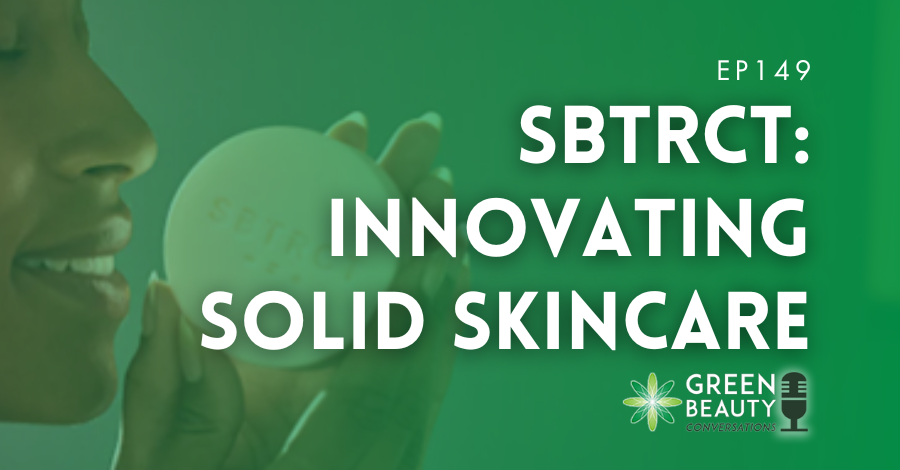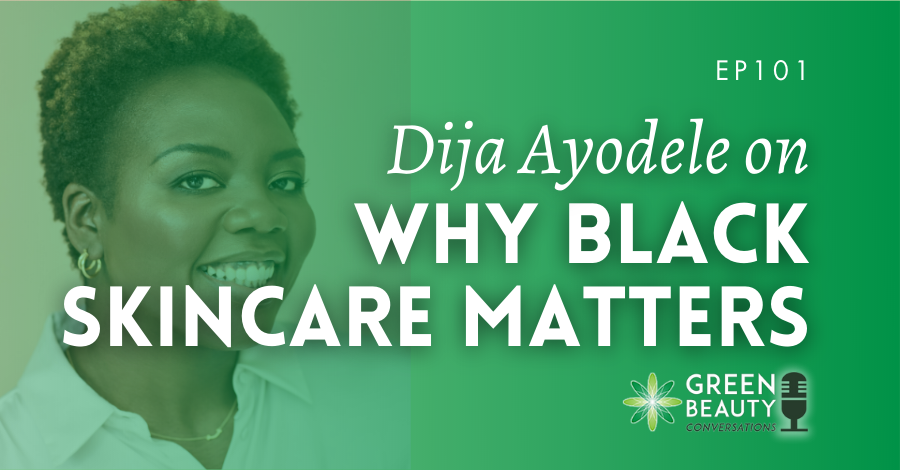Reducing plastic in the packaging of personal care products is high on the agenda of many mainstream cosmetics’ firms, but are the microplastics in cosmetics getting the same attention? Even if a brand’s packaging is plastic free, the product inside may not be. What goes into the bottle – the formulations we slather on each day – are literally riddled with micro- and nanoplastics. Shocked? So were we.
We have covered the issues of post-consumer plastics, biodegradability and zero waste in the past. But plastic in outer packaging is just the tip of the iceberg when it comes to the use of plastic in the cosmetics’ industry.
An estimated 9 out of 10 mainstream personal care products may contain microplastics. These figures aren’t plucked from thin air. They come from the Plastic Soup Foundation, a single-issue environmental organisation working to stop plastic pollution at its source. The Foundation conducted scientific research into its database of over 7,000 cosmetics from 10 big brands and concluded that microplastics were present in 87% of the products analysed.
The environmental and human health impacts of these hidden plastics are now the subject not only of research, but also of proposed EU legislation. As we discover in this episode, intentionally-added microplastics are contentious and the very mention of their restriction or outright ban has seen push back from the mainstream cosmetics industry.
To unpack the data from the debate, Formula Botanica CEO and podcast host Lorraine Dallmeier talks to Madhuri Prabhakar, project leader and campaigner of the Beat the Microbead (BTMB) campaign by the Plastic Soup Foundation. Listen in for some shocking revelations about plastics in cosmetic formulations.
With thousands of liquid microplastics in the formulations of personal care products, should we be worried? @FormulaBotanica podcast talks to #MadhuriPrabhakar @PlasticSoupFoun #plasticsoupfoundation #microplastics… Share on X
In this episode on microplastics in cosmetics, you will hear how:
- Microplastics are found in all types of cosmetic products we use daily from shower gels and face creams to toothpaste and sunscreens.
- There is no single definition – accepted by the personal care industry, legislators and other bodies – of microplastics used in cosmetics. As a result, The Plastic Soup Foundation is concerned that thousands of liquid micro- and nanoplastics (synthetic polymers in cosmetics) may fall outside the scope of proposed EU legislation and continue to be present in our personal care products for generations to come.
- Consumers have a hard time deciphering cosmetics’ labels and may not know what microplastics are lurking in ingredients’ lists. The Plastic Soup Foundation’s ‘Beat the Microbead’ app allows you to scan the ingredients on packaging to see if your product contains microplastics.
- The Plastic Soup Foundation would like to see the precautionary principle applied to legislation which would ensure that intentionally-added liquid microplastic and nanoplastics would be banned from cosmetics while further research and data is gathered on their harm to human health and the environment.
Key takeouts include:
- There is no need for synthetic polymers to be present in cosmetic formulations. The Plastic Soup Foundation considers their use in cosmetics as ‘design errors’.
- No corner on earth is left untouched by microplastics which are found everywhere and in everything from our entire food chain to the depths of the Mariana Ocean trench. Microplastics have been found to be present in our blood, lungs and placenta.
- If certain micro- and nanoplastics are omitted from impending legislation banning their use in the EU, it is conceivable that cosmetics brands could use ‘microplastic free’ on products that still contained microplastics.
- Action could be taken now on microplastics before science reveals the full scale of their impact on health and the environment.
Meet our guest

In this short time, she learned a lot about microplastic pollution and even had to say goodbye to some of her favourite beauty brands. Now, she is passionate about and striving to make the beauty industry free of plastic ingredients. She believes that we all deserve to care for ourselves while caring for our planet.
As part of this campaign, Madhuri worked on a tool to help consumers worldwide learn about plastic ingredients in their care products: the ‘Beat the Microbead’ app that scans cosmetics’ ingredients for plastics. In 2020, when the app was launched, Madhuri was also voted into the top 25 influencers list in the natural beauty industry. She is immensely proud of this campaign, and she hopes that it will shake things up in the beauty industry and give consumers the power of choice.
Find out more
Beat the Microbead Campaign
Beat the Microbead App (to scan cosmetic ingredients for microplastics)
The Plastic Soup Foundation
Thank you for joining us for this episode of the Formula Botanica Green Beauty Conversations podcast. If you enjoyed listening, please share, subscribe and review this episode on Apple Podcasts, Spotify or Youtube so that more people can enjoy the show. Don’t forget to follow and connect with us on Facebook and Instagram.
FREE TRAINING
Learn how to become an
Organic Skincare Formulator
FREE TRAINING
How to become an
Organic Skincare Entrepreneur
FREE TRAINING
How to become an
Organic Skincare Entrepreneur
Leave us a comment
Lorraine Dallmeier is a Biologist, Chartered Environmentalist and the CEO of Formula Botanica, the award-winning online organic cosmetic science school. Read more about Lorraine and the Formula Botanica Team.

